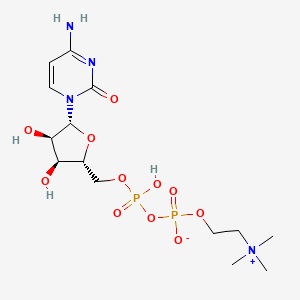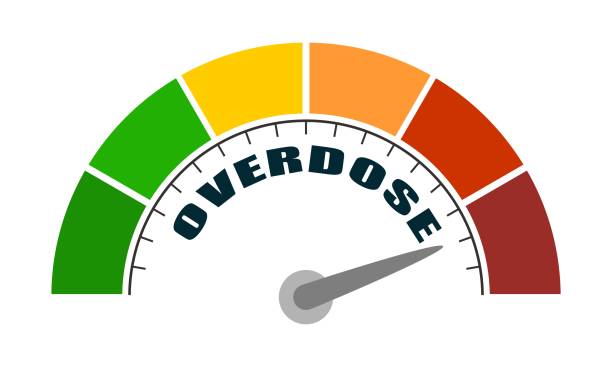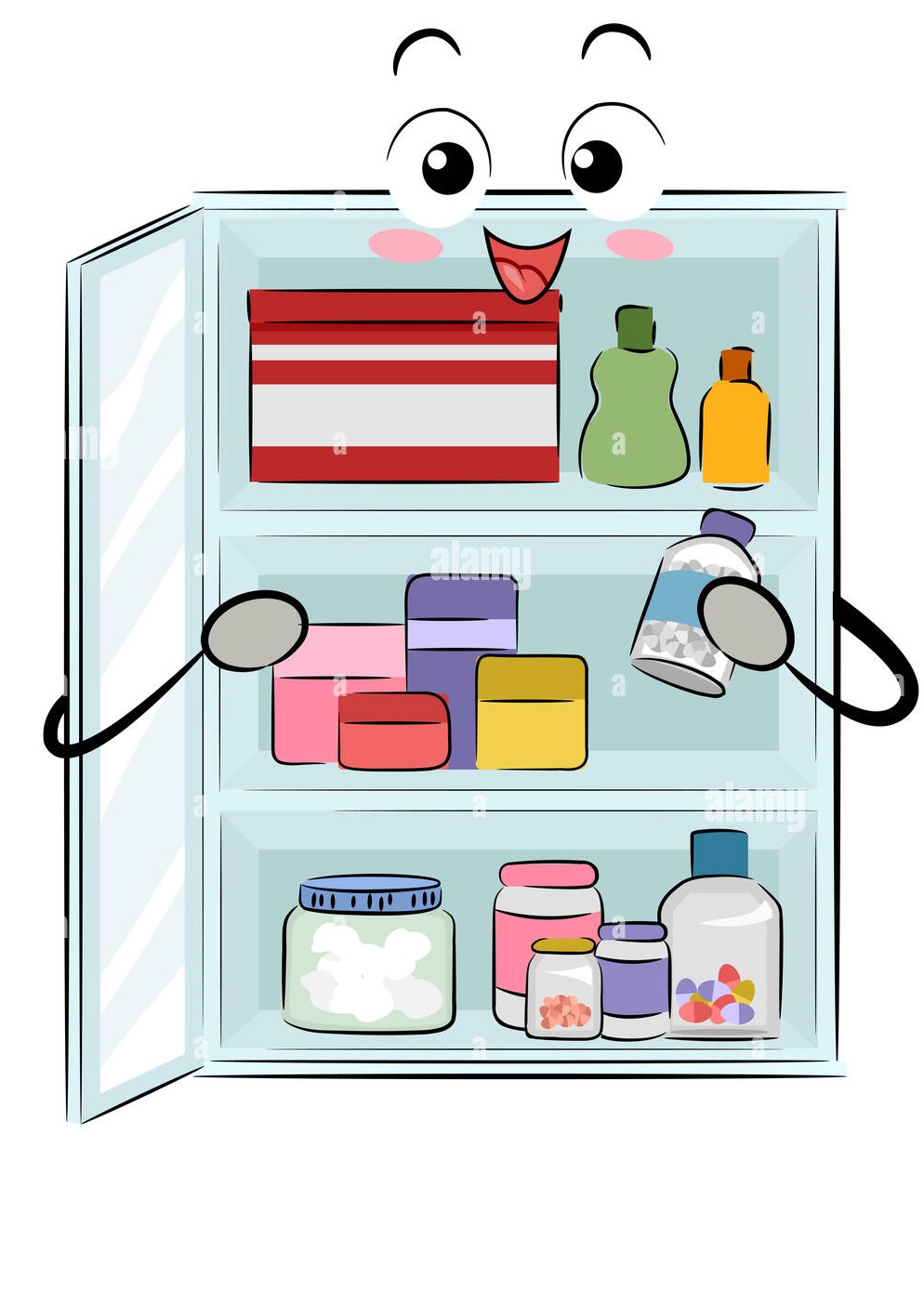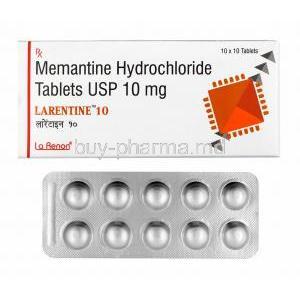Citicoline Oral Suspension
- Introduction
- Uses of Citicoline Oral Suspension
- Off-Label Uses
- How Citicoline Works
- Dosage and Administration
- Composition of Citicoline Oral Suspension
- Side Effects of Citicoline Oral Suspension
- Interaction with Other Medications
- Warnings and Contraindications
- Careful Administration and Important Precautions
- Special Considerations
- Overdosage and Its Management
- Storage Instructions for Citicoline Oral Suspension
- Handling Precautions
Introduction
Citicoline plays a role in producing phosphatidylcholine, an essential component of brain cell membranes. This compound has implications in neuropsychopharmacology as it effectively treats various conditions, such as cognitive decline and neurodegenerative diseases. Neurotransmitters are essential for communication within the network, ensuring smooth transmission of information between neurons. When these chemical messengers are imbalanced, it can lead to psychiatric disorders.
- Citicoline helps restore neurotransmitters' balance, optimizing brain functions like a coordinated symphony.
- Among the ways to administer citicoline oral suspension is worth considering due to its unique advantages.
This formulation offers a way to consume the medication without experiencing discomfort associated with tablets. Furthermore, oral suspensions have bioavailability, meaning they deliver the active compound promptly and effectively into the bloodstream.
Uses of Citicoline Oral Suspension
Cognitive Enhancement
Citicoline1 has shown the potential to improve cognitive abilities. Numerous controlled studies have confirmed its effectiveness in enhancing mental clarity, analytical reasoning, and problem-solving skills. It acts as a nootropic supporting:
- Increased mental clarity
- Enhanced analytical thinking
- Improved executive functions
Memory Improvement
Memory is an aspect of the human experience, and Citicoline displays immense potential in enhancing this crucial ability. Influencing neurotransmitter activity and stabilizing cell membranes dramatically improves the retention of both long-term memories.
Focus and Attention
Being able to focus is essential in a world constantly filled with distractions. Citicoline helps maintain attention and focused behavior by regulating neurotransmitter levels, dopamine.
Neuroprotection
Citicoline has been found to have an impact on protecting the brain. It works by stabilizing the membranes of cells and reducing the effects of oxidative stress caused by free radicals on neural cells.
Stroke Recovery
Researchers have extensively studied Citicoline in cerebrovascular events due to its powerful ability to restore neurological function. When administered promptly after a stroke, this compound has shown results in reducing neurological impairments and promoting functional recovery. It brings renewed hope amidst the aftermath of cerebral damage.
Treatment of Neurodegenerative Diseases
Citicoline's remarkable versatility is evident in its effectiveness in treating conditions like Alzheimer's and Parkinsons' disease. It complements traditional pharmacotherapy, offering significant relief from symptoms and even slowing down the progression of these challenging disorders.
Other Approved Indications
Citicoline is primarily used in the field of neurology. It also has applications in other areas. In ophthalmology, it treats vision disorders such as glaucoma and amblyopia. Recent studies indicate that it may benefit psychiatric conditions like bipolar disorder and depression.
Off-Label Uses
Treatment of ADHD
ADHD has always been a problem for traditional medicine. Interestingly, Citicoline is gaining popularity as a treatment option even though it's not officially approved. It helps improve attention control over impulses and cognitive flexibility. By adjusting the activity of neurotransmitters by increasing dopamine levels, Citicoline may help reduce impulsiveness and lack of focus often seen in people with ADHD.
Mood Enhancement
Although Citicoline is not primarily used as an agent, it has positively affected mood regulation. By increasing serotonin and dopamine levels, this compound could be an addition to treating mood disorders. As a result, it is sometimes used as a label for mood stabilization. To improve emotional stability.
Substance Withdrawal Support
Detoxification and the process of withdrawing from substances such as alcohol or drugs can impact the brain. Citicoline can potentially lessen the severity of withdrawal symptoms by restoring balance to neurotransmitters and strengthening the stability of cell membranes.
How Citicoline Works
Mechanism of Action in Neurotransmitter Production
Citicoline greatly aids the production of neurotransmitters, especially acetylcholine. This is achieved by supplying cytidine and choline, precursors to uridine nucleotide and quaternary ammonium salt, thereby supporting the synthesis and release of neurotransmitters in the brain.
Role in Cell Membrane Integrity
Phosphatidylcholine, a component of cell membranes, depends on Citicoline as a precursor. The ability of Citicoline to stabilize these membranes is precious in the fight against diseases and cognitive decline.
Synergistic Effects with Other Cognitive Enhancers
It is worth mentioning that Citicoline can work together with nootropic substances. When combined with racetams or adaptogens, Citicoline tends to improve the effectiveness of these enhancers, maximizing their positive impact on the brain.
Dosage and Administration
Recommended Dosage for Various Conditions
The recommended amount of Citicoline may differ depending on the seriousness and nature of the condition being treated. Here are some general guidelines to consider:
- It is generally advised to take between 500 and 2000mg of Citicoline per day for impairment.
- A daily dosage of 500 2000mg of Citicoline is often suggested in stroke recovery cases.
- A daily intake of 500 1000mg of Citicoline is commonly recommended when dealing with diseases.
However, it is essential to consult with healthcare professionals and undergo assessments to validate these values accurately.
Best Practices for Administration
To achieve the possible pharmacodynamic results, taking Citicoline oral suspension when your stomach is empty is advisable. Taking it simultaneously each day is also recommended, as this helps ensure the expected therapeutic outcomes and effectiveness.
Duration of Treatment
The duration for which Citicoline should be given depends on the condition it is being used to treat. In situations like stroke, a shorter treatment period might be enough, whereas chronic conditions, like neurodegenerative diseases, may require a longer course of medication.
Composition of Citicoline Oral Suspension
Active Ingredient: Citicoline
The heart of Citicoline suspension is its main component—Citicoline, also called cytidine 5' diphosphocholine. This particular molecule plays a role in producing necessary details for the brain, making it essential for its various effects on our body.

Excipients and Preservatives
Apart from the ingredient, a Citicoline oral liquid also contains additional substances and additives that help maintain its stability, taste, and ability to be absorbed by the body. These components may include sweeteners like sucrose or similar substances, thickening agents like hydroxyethyl cellulose, and antimicrobial preservatives like parabens. These extra ingredients ensure that the suspension remains effective over an extended period and improves its ability to dissolve properly.
Comparative Analysis with Other Forms of Citicoline
Citicoline is accessible in forms like tablets and intravenous solutions. However, oral suspension has its unique benefits. These include:
- Improved absorption into the body
- Administration for people with difficulty swallowing and faster effects
As a result, oral suspension is an alternative that works well for elderly patients and those with gastrointestinal issues.
Side Effects of Citicoline Oral Suspension
Common Side Effects
While Citicoline is generally well tolerated, it can still have some effects. The frequently mentioned side effects are headaches, nausea, and fatigue. Thankfully, these effects are usually temporary and go away independently, so there's no need to stop the treatment.

Digestive Issues
Sometimes, people may have digestive issues like feeling uncomfortable in their stomach or having diarrhea. If this happens, it's an idea to talk to a healthcare professional about adjusting the dosage or trying additional treatments to help ease the symptoms.
Insomnia
Due to its ability to stimulate neurotransmitters, Citicoline has been associated with causing sleep problems. However, changing the dosage timings can help reduce this side effect and promote a night's sleep.
Rare but Serious Side Effects
Instances of more severe side effects are not very common but require immediate medical attention. These can include increased heart rate, difficulty focusing vision, or unusual changes in behavior.
Hypotension
Although it is not an occurrence, some reported instances of low blood pressure are associated with using Citicoline. If you are already taking medication for blood pressure, it is essential to be cautious and regularly monitor your blood pressure levels.
Allergic Reactions
Although highly uncommon, allergic reactions can be skin rashes, hives, or anaphylactic shock. Sometimes, stopping the treatment immediately and seeking urgent medical attention is crucial.

Interaction with Other Medications
Medications to Avoid
Using Citicoline together with medications can lead to undesirable pharmacological effects. Some medicines that should be noted are:
- Anticholinergic drugs: There is a theoretical concern that the effects of anticholinergic medications may worsen.
- Vasodilators: When combined with Citicoline, there is a potential for increased hypotensive effects.
- Stimulant medications include amphetamines, which may increase excitability or cause a heartbeat. It is essential to avoid interactions to prevent complications caused by medical treatment.
Possible Synergies with Other Neuroenhancers
Citicoline possesses a feature in its ability to potentially enhance cognitive effects when used alongside other nootropic or neuroenhancing substances. For example:
- The usage of Racetams has shown an increase in improvements.
- Adaptogens such as Rhodiola Rosea may complement the stress-reducing benefits of Citicoline.
However, exercising caution and ensuring that these synergistic combinations are used under medical supervision is essential.
Effect on Liver Enzymes and Drug Metabolism
The process of breaking down Citicoline in the liver is usually harmless. Does not have a significant impact on the activity of cytochrome P450 enzymes. However, it is still advisable to check the levels of liver enzymes, especially for individuals taking multiple medications that may interact with the liver.
Warnings and Contraindications
Individuals with Pre-existing Conditions
Individuals with medical conditions, such as advanced liver disease or significant kidney impairment, should exercise caution when considering treatment with Citicoline. It may be necessary to adjust the dosage or explore alternative treatment approaches for cases.
Drug Interactions to Be Cautious About
In addition to the mentioned medicines, it is essential to be careful when using blood thinners, antihypertensive, and medications that could potentially cause serotonin syndrome. Considering one's overall medication plan before taking Citicoline responsibly is crucial.
General Warnings
Advisory statements are frequently provided with Citicoline about its long-term usage. It is essential to undergo medical evaluations to ensure its continued suitability. Regarding pregnancy and breastfeeding, caution is advised due to the lack of evidence available.
Careful Administration and Important Precautions
Monitoring Liver and Kidney Function
Regular monitoring of liver and kidney markers is beneficial for individuals undergoing Citicoline treatment. Since Citicoline is processed and eliminated by these organs, any abnormalities in their functioning could affect how the medication is absorbed and distributed in the body.
Regular Medical Check-ups During Administration
Regular medical checkups are essential when it comes to any pharmacotherapy. They become even more critical in the case of taking Citicoline. Ideally, these visits should include a blood test, liver function tests, kidney markers, and regular neurological assessments to evaluate how well the treatment works.
Special Considerations
Administration to the Elderly
Dosage Adjustments
The elderly often show changes in how their bodies process medications, so adjusting their medication regimens is essential. When it comes to Citicoline, there are a couple of factors to consider:
- Renal Function: As people age, their kidney function tends to decrease. Therefore, it might be necessary to adjust the dosage.
- Concurrent Medications: Older individuals often take medications at once, so it's crucial to thoroughly evaluate potential interactions between them.
Ensuring the dosage is tailored based on these variables is essential for minimizing any effects while maximizing the therapeutic benefits.

Monitoring for Side Effects
Side effects might increase in patients because their physiological reserves are diminished. It is recommended to monitor blood pressure as orthostatic hypotension is more likely to occur in this population. Conducting assessments can help identify early signs of excessive stimulation or insomnia. Regular evaluations can help reduce the risk of side effects that develop slowly over time, thus contributing to a treatment plan.
Administration to Pregnant Women and Nursing Mothers
Safety Profile
Given the number of thorough studies on Citicoline's potential teratogenic or embryotoxic effects, it is crucial to approach with caution. While animal studies generally suggest a nature, its applicability to human pregnancy remains uncertain. Hence, it falls within the category of medications that require considering and evaluating risks versus benefits.

Consultation with Healthcare Provider
Before starting Citicoline therapy, breastfeeding mothers should have detailed discussions with their healthcare providers. These conversations help in:
- Evaluating the risks based on the individual's history.
- Assessing the benefits compared to the possible dangers.
- Making decisions through comprehensive evaluations.
Expecters and nursing mothers must consult with their healthcare providers thoroughly before beginning Citicoline therapy.
Administration to Children
Age Restrictions
Clinical guidelines for the use of Citicoline mainly focus on adults. Therefore, it is essential to exercise caution when considering its administration in pediatric populations. The limited availability of studies on its safety and effectiveness in children creates age-related restrictions.

Pediatric Dosage Guidelines
When giving Citicoline to children, there aren't usually dosage guidelines. However, using weight as a basis for dosing could be an approach. It's essential to monitor for any adverse effects. Since the neurological development of children is still progressing, it's crucial to prioritize caution when using medication responsibly.
Overdosage and Its Management
Signs and Symptoms of Overdosage
Although Citicoline is generally considered safe, it's essential to know that overdosing is not entirely impossible. Signs of an overdose might include:
- Heart rate (tachycardia) feeling excessively
- Restless or energetic
- Experiencing gastrointestinal issues like nausea, vomiting, or diarrhea.
Recognizing these symptoms is crucial for seeking suitable medical treatment.

Immediate Steps for Management
When someone takes too much Citicoline, acting quickly for adequate medical care is crucial. The following steps are essential:
- Stop taking Citicoline
- Treat the symptoms that arise such as using antiemetics to alleviate discomfort.
- Seek medical advice from healthcare professionals for a thorough diagnosis and treatment plan.
Taking these steps promptly helps minimize effects and facilitates the restoration of balance, in the body.
Storage Instructions for Citicoline Oral Suspension
Ideal Storage Conditions
The effectiveness and shelf life of Citicoline Oral Suspension is closely linked to how it's stored. It is best to keep it within the following conditions:
- Temperature: Ideally, between 15 to 30 degrees Celsius.
- Humidity: It should be stored in an environment with low to moderate humidity, avoiding excessive moisture.
- Light: Keeping it in a place is often recommended to prevent photodegradation.
Following these guidelines will help maintain the potency of the ingredients and ensure that the medication remains effective.

Shelf Life
Usually, when you store Citicoline Oral Suspension, as mentioned earlier, it can last around 24 months. However, using it after the expiration date is not recommended because its effectiveness may be compromised, and there could be an increased risk of experiencing effects.
Handling Precautions
Measures to Prevent Contamination
It is crucial to maintain the cleanliness of Citicoline Oral Suspension to prevent any risk of contamination. To ensure this, please take the protective measures:
- If applicable, use a sterile administration utensil.
- Close the container right after use.
- Avoid any direct contact between the dispensing mechanism and surfaces.
By following these procedures, we can effectively protect against any intrusion and maintain the purity of the medication.
Safe Disposal Methods
Disposing expired or unused Citicoline Oral Suspension is essential for safe medication management. There are recommended ways to do this:
- Utilize drug take-back programs: Many pharmacies and healthcare institutions offer these programs to help dispose of them.
- Consult with waste management authorities: They can guide the appropriate disposal methods that comply with regulations.
Following these methods is beneficial for both the environment and public health.

















